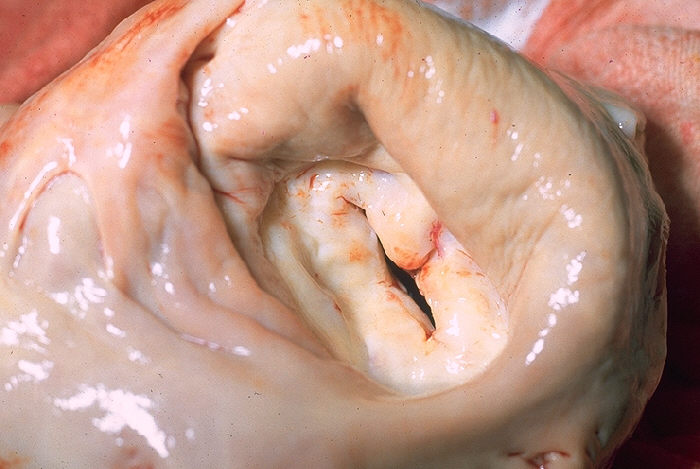
Mitral stenosis
Mitral stenosis is a valvular heart disease characterized by the narrowing of the opening of the mitral valve of the heart.[1] It is almost always caused by rheumatic valvular heart disease. Normally, the mitral valve is about 5 cm2 during diastole. Any decrease in area below 2 cm2 causes mitral stenosis. Early diagnosis of mitral stenosis in pregnancy is very important as the heart cannot tolerate increased cardiac output demand as in the case of exercise and pregnancy. Atrial fibrillation is a common complication of resulting left atrial enlargement, which can lead to systemic thromboembolic complications such as stroke.[2]
Mitral stenosis
- dyspnea on exertion, orthopnea and paroxysmal nocturnal dyspnea
- Palpitations
- Chest pain
- Hemoptysis
- Ascites, edema and hepatomegaly
Late Stage:
- Thromboembolism
Physical Examination, Chest X-ray, Echocardiography, Electrocardiography